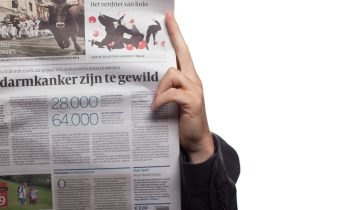Run for Unity: Resurrecting Sardar Patel’s Ideals

Introduction
October 31st, 2017 marked the 142nd birthday of the “Iron Man of India:” Sardar Vallabhbhai Patel. Prime Minister Narendra Modi initiated the “Run for Unity,” a 1.5 km race organized in honour of Patel. The event witnessed participation and gathered appreciation from many celebrities, presenting a harmonious picture of the diverse Indian populace.
“We salute Sardar Patel on his Jayanti. His momentous service and monumental contribution to India can never be forgotten,” PM Modi said while flagging off the race.
The day is observed as “Rashtriya Ekta Divas” to commemorate Sardar Patel’s arduous efforts in building the India that we know of and live in today. An initiative such as this will work towards keeping alive his indispensable role after independence. PM Modi also addressed the issue of overlooking Sardar Patel’s contribution in India’s history during his speech.
Sardar Patel’s Contributions in Uniting India
It is no unknown fact that India’s independence came at an enormously heavy price of partition, paid by the inhabitants of both the lands. When the British left India and Pakistan divided into several broken pieces, the country was a picture of utter chaos and distrust. A total of about 575 princely states, including the very important state of Hyderabad, were given the freedom to choose which country they wished to join. In an atmosphere of cynicism reeking at every nook and corner of this land, emerged the Iron Man of India. Sardar Patel, with his remarkably persistent efforts, successfully weaved together all the princely states into the land of cultural-religious diversity, India.
“That there is today an India to think and talk about,” wrote President Rajendra Prasad in his diary “is very largely due to Sardar Patel’s statesmanship and firm administration.”
His role in building a united nation, in harmonizing the terrifyingly divided people, in creating an unprecedented unison while facing all the challenges post-independence, is emphatically huge. He worked as the Deputy Prime Minister and managed a number of other portfolios while also contributing his bit in the Constituent Assembly.
Communal Waves Shuddering National Harmony
Sardar Patel’s rigorous efforts made it possible for the post-independent India to stand tall on its feet, undivided and unbroken. But 7 decades later, today, the waves of communalism have proven stronger than he. In a mad setup of mob lynching and burning people alive, the communal forces have rather unfortunately made an indestructible grip over the entire country. From court verdicts to presidential elections, every new issue is indirectly linked to the communal factor. It has burgeoned to the level where the country is moving towards the denial of its idiosyncratic diversity.
The India that Mahatma Gandhi dreamt of, the India that Sardar Patel endeavoured to create, the India that APJ Abdul Kalam developed, is sadly kneeling down to people who are killing their own kind in the name of religion and community.
It comes as a matter of grief that the country once brought together by a single man has, today, forgotten his exemplary contribution. But there is absolute shame in having killed that unity with the scalpels of communalism. With the initiatives like “Run for Unity”, the coming generation may try to adopt the ideals as Sardar Patel’s and create a unified nation, repeating history.




